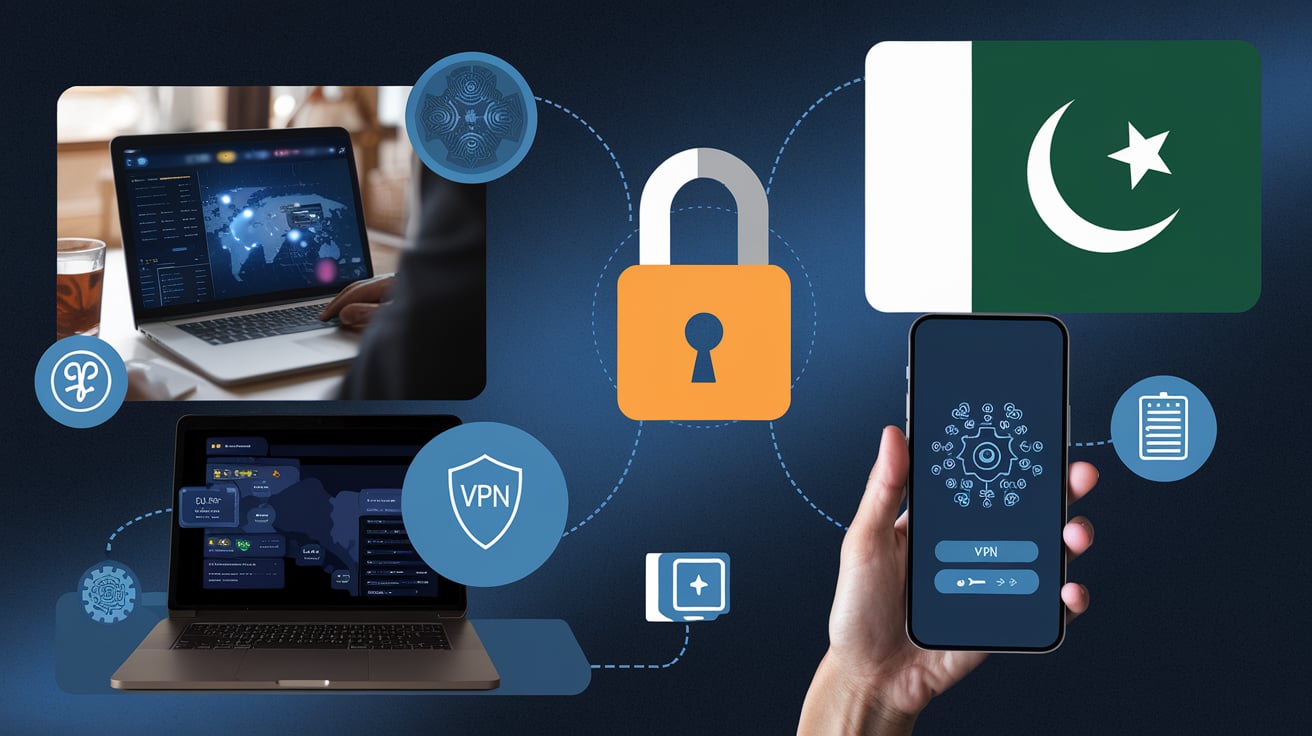In today’s digital world, privacy is more important than ever. With growing concerns over government surveillance, restricted internet access, and cybersecurity threats, many individuals rely on Virtual Private Networks (VPNs) to safeguard their online activities. However, in Pakistan, strict regulations have been introduced to control VPN usage, raising questions about digital rights, freedom of speech, and unrestricted internet access.
Government Regulations on VPNs in Pakistan
The Pakistan Telecommunication Authority (PTA) requires users to register their VPNs to comply with national security policies (source). Authorities argue that this step helps in monitoring cyber activities and preventing illegal activities. However, critics claim these restrictions limit digital freedom and restrict access to unbiased information.
Additionally, some religious scholars have expressed concerns regarding VPN usage, leading to debates on whether digital privacy should be regulated based on security and ethical considerations (source).
Why Are VPNs Important?
VPNs provide several key benefits for internet users:
- Enhanced Security – VPNs encrypt internet traffic, making it difficult for hackers to steal data (source).
- Bypassing Censorship – They enable access to restricted websites and platforms (source).
- Maintaining Anonymity – VPNs hide users’ IP addresses, preventing tracking and unauthorized data collection.
- Secure Remote Work – Businesses use VPNs to protect confidential information when employees work remotely.
The Ethical and Legal Debate
VPN restrictions raise concerns about balancing national security with personal freedoms. While government officials argue that unregulated VPNs can be misused, many activists believe such restrictions limit free speech and access to global information (source).
Human rights organizations highlight that limiting VPN access affects journalists, activists, and everyday users seeking unrestricted content. This is particularly concerning in regions where media control is already strict (source).
Global Perspective on Digital Privacy
Pakistan is not alone in imposing VPN restrictions. Countries such as China, Russia, and Iran have similar laws limiting VPN usage (source). Meanwhile, democratic nations like the United States and many European countries promote digital privacy as a fundamental right. The debate over balancing security concerns and online freedom continues worldwide.
How to Strengthen Digital Privacy
As VPN regulations tighten, users can take additional steps to protect their online security:
- Use encrypted messaging apps like Signal or Telegram (source).
- Regularly update passwords and enable two-factor authentication (2FA).
- Be cautious about sharing sensitive information on unsecured websites.
- Stay informed about digital rights and evolving privacy laws (source).
The ongoing discussion about VPN usage in Pakistan reflects a broader issue of digital security, government control, and online privacy. As technology continues to evolve, finding a fair balance between security regulations and personal freedoms will remain a crucial challenge.
With increasing digital surveillance, protecting online privacy is more important than ever. The central question remains: Should people have unrestricted access to the internet, or should governments impose regulations for security reasons? The way this issue is addressed will shape the future of internet freedom in Pakistan.









